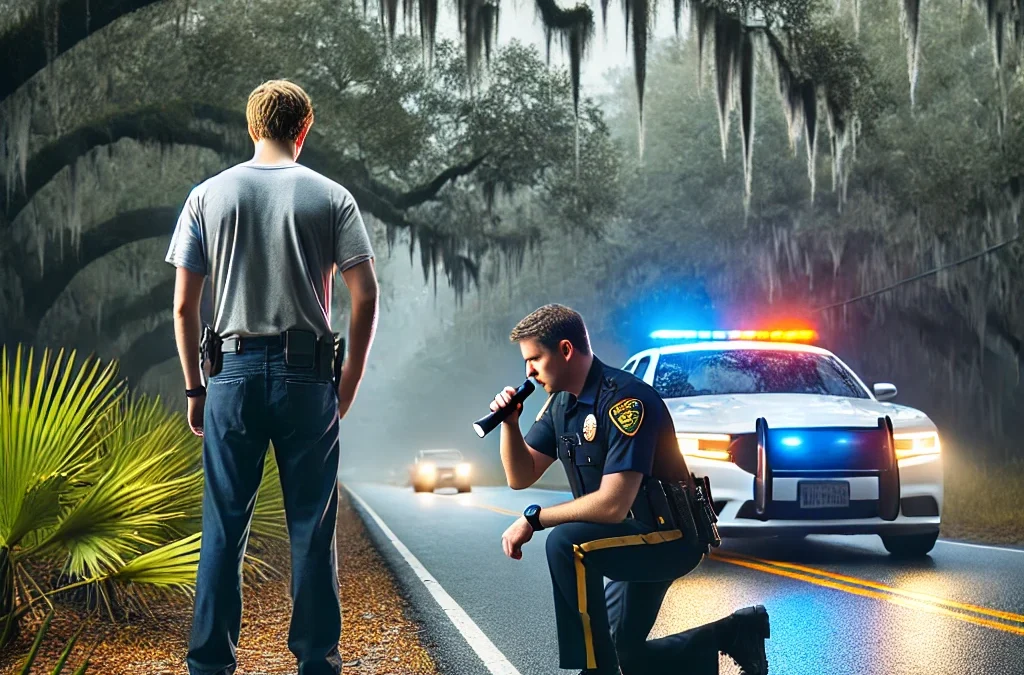Field sobriety tests are a common tool used by law enforcement officers in South Carolina to assess whether a driver is impaired.
While they play a significant role in DUI investigations, many people wonder: are these tests truly reliable?
In this article, we’ll explore how field sobriety tests work, their limitations, and what you should know if you’re facing DUI charges in South Carolina.
What Are Field Sobriety Tests?
Field sobriety tests are physical and cognitive exercises administered by police officers during a traffic stop to evaluate a driver’s level of impairment. These tests are designed to detect signs of intoxication caused by alcohol or drugs.
In South Carolina, law enforcement officers typically use the standardized field sobriety tests (SFSTs) developed by the National Highway Traffic Safety Administration (NHTSA), which include:
- Horizontal Gaze Nystagmus (HGN): This test evaluates involuntary eye movements that may occur when someone is under the influence of alcohol.
- Walk-and-Turn (WAT): The driver is instructed to walk a straight line, heel-to-toe, turn, and walk back.
- One-Leg Stand (OLS): The driver must balance on one leg for a specified period of time while following verbal instructions.
These tests are often conducted at the roadside, usually under less-than-ideal conditions, and serve as a preliminary assessment before further testing, such as a breathalyzer or blood test.
Are Field Sobriety Tests Reliable?
While field sobriety tests are widely used, their reliability is often called into question. Here are some factors that can affect their accuracy:
1. Environmental Conditions
Field sobriety tests are frequently conducted on the side of the road, where uneven surfaces, poor lighting, and weather conditions can make it difficult for a sober person to perform well. These factors can lead to false indications of impairment.
2. Physical and Medical Conditions
Individuals with physical disabilities, injuries, or medical conditions may struggle to perform the required tasks, even if they are not impaired. For example, balance issues caused by inner ear problems or neurological conditions can affect test performance.
3. Officer Training and Subjectivity
The accuracy of field sobriety tests also depends on the officer’s training and ability to administer the tests correctly. Additionally, the results are subjective, as the officer determines whether the individual “passed” or “failed” based on their observations.
4. Stress and Nervousness
Being pulled over by law enforcement can be a stressful experience. Nervousness and anxiety may cause individuals to appear unsteady or forget instructions, even if they are completely sober.
5. Scientific Limitations
While the NHTSA has validated the standardized field sobriety tests as tools for detecting impairment, they are not foolproof. Studies have shown that the accuracy of these tests ranges from 65% to 77%, meaning there is still a significant margin for error.
Legal Challenges to Field Sobriety Tests in South Carolina
In South Carolina, DUI defense attorneys often challenge the reliability of field sobriety tests in court. Key arguments may include:
- The conditions under which the test was administered were unfair or unsafe.
- The officer failed to properly explain or demonstrate the test.
- The driver’s physical or medical condition rendered the test results unreliable.
- The subjective nature of the officer’s observations led to inaccurate conclusions.
It’s important to note that failing a field sobriety test does not automatically mean you will be convicted of a DUI. South Carolina law requires prosecutors to prove impairment beyond a reasonable doubt, and field sobriety test results can be challenged as part of your defense.
Know Your Rights During a DUI Stop
If you are pulled over in South Carolina on suspicion of DUI, it’s crucial to understand your rights. You are not required to take field sobriety tests, and refusing to do so cannot be used as evidence against you in court.
However, refusing a chemical test (such as a breathalyzer) can result in an automatic suspension of your driver’s license under South Carolina’s implied consent law (S.C. Code § 56-5-2950).
Field sobriety tests are a key part of DUI investigations in South Carolina, but their reliability is far from guaranteed. Environmental factors, medical conditions, and officer subjectivity can all impact the results, making it essential to scrutinize these tests carefully in any DUI case.
If you’ve been charged with a DUI, seek legal assistance to ensure your rights are protected and explore all possible defenses.
Charged with DUI in South Carolina?
Facing a DUI charge can be overwhelming, but you don’t have to face it alone. Consulting with a qualified DUI attorney can help you understand your legal options, challenge the evidence against you, and work toward the best possible outcome for your case.
If you’ve been arrested for DUI in South Carolina, don’t wait to seek legal help. Contact Seaton & Duncan today to discuss your case and build a strong defense.
Ready To Speak With An Attorney?
Let’s discuss the details of your case and see if we can help.

